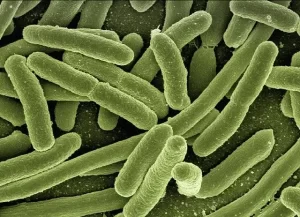One shot of mRNA directly generates CAR-T to repair the heart
- Did Cloud Seeding Unleash a Deluge in Dubai?
- Scientists Identify Gut Bacteria and Metabolites that Lower Diabetes Risk
- OpenAI’s Model Matches Doctors in Assessing Eye Conditions
- UK: A Smoke-Free Generation by Banning Sales to Those Born After 2009
- Deadly Mutation: A New Monkeypox Variant Emerges in the DRC
- EPA Announces First-Ever Regulation for “Forever Chemicals” in Drinking Water
One shot of mRNA directly generates CAR-T to repair the heart
- Red Yeast Rice Scare Grips Japan: Over 114 Hospitalized and 5 Deaths
- Long COVID Brain Fog: Blood-Brain Barrier Damage and Persistent Inflammation
- FDA has mandated a top-level black box warning for all marketed CAR-T therapies
- Can people with high blood pressure eat peanuts?
- What is the difference between dopamine and dobutamine?
- How long can the patient live after heart stent surgery?
Science blockbuster: Inject mRNA, directly generate CAR-T in the body, repair the heart with one shot
Heart injury or inflammation can cause fibroblasts to overproduce fibrous material, which hardens the heart muscle and impairs heart function, which is called cardiac fibrosis .
Cardiac fibrosis can cause many serious diseases, including heart failure, liver disease, kidney failure, and so on.
CAR-T cell therapy , the full name is chimeric antigen receptor T cell therapy. In 2017, the FDA approved the first CAR-T cell therapy to be marketed for the treatment of leukemia, opening a new era of CAR-T cell therapy.
However, so far, CAR-T cell therapy requires collecting the patient’s own T cells and then genetically reprogramming them in the laboratory to enable them to recognize specific cancer cells, so that they can be identified and killed after being transfused into the human body.
The whole process is complicated and time-consuming, so the price is very expensive, and the price is hundreds of thousands of dollars.
The CAR-T cell therapies currently on the market are all for the treatment of hematological cancers, but they have also shown promising effects in many other types of diseases.
As early as 2019, the Jonathan Epstein team of the Perelman School of Medicine at the University of Pennsylvania confirmed that CAR-T cell therapy can target overactive cardiac fibroblasts to restore heart function .
However, this CAR-T cell therapy has a serious flaw in the treatment of cardiac fibrosis-related diseases , because fibroblasts have important functions in the human body, especially in wound healing.
Once in vitro reprogrammed CAR-T cell therapy is injected into the human body, it can exist in the human body for months or even years, thereby inhibiting fibroblasts for a long time and impairing functions such as wound healing.
January 6, 2022, the researchers of the University of Pennsylvania Perelman School of Medicine published a paper in Science, entitled: CAR T cells produced in vivo to treat cardiac injury .
Research team developed a generated in vivo transient engineered CAR-T cell therapy , by injection lipid nanoparticle ( LNP ) delivered the mRNA , reprogramming T cells to recognize cells cardiac fibrosis, thereby reducing fibrosis, Restore heart function in a mouse model of heart failure.
This method is similar to mRNA vaccines. It only needs one injection to generate CAR-T cell therapy in the body. It is expected to solve the current CAR-T therapy process complexity, long cycle, and high price .

The paper has a strong lineup of authors, including Jonathan Epstein , chief scientist at the Perelman School of Medicine at the University of Pennsylvania , Drew Weissman , one of the founders of mRNA technology , and Carl June, the father of CAR-T .
In this new study, the research team designed a new type of CAR-T cell therapy based on mRNA technology, which re-encodes T cell receptors through mRNA to target fibroblast activation protein (FAP) , using lipid nano Particles (LNP) are delivered, and the LNP carrier has been widely used and verified in the new coronavirus mRNA vaccine.
The LNP vector can recognize CD5 that is highly expressed by T cells, thereby specifically targeting T cells to generate FAP-CAR-T cells .

Then, the research team conducted a treatment experiment on a mouse model of heart injury.
The mRNA was encapsulated by CD5/LNP and then injected into the mouse.
These mRNA molecules successfully entered the mouse T cells, effectively reprogramming the T cells, and made them Targeted attack activated fibroblasts.
This reprogramming is temporary, and the mRNA is not integrated into the T cell genome. After a few days, these T cells recover and no longer target fibroblasts.
What’s important is that in just a few days, mRNA induced reprogramming of a large number of CAR-T cells, resulting in a significant reduction in mouse cardiac fibrosis and restoring the normal size and function of the heart .

Since mRNA can only exist stably in the body for a short period of time (about one week) , this kind of engineered CAR-T cell therapy generated in vivo is transient, unlike traditional viral vector-based in vitro reprogramming CAR-T cell therapy The same long-term effect, so it will not inhibit fibroblasts for a long time and impair wound healing and other functions.
Traditional CAR-T cell therapy requires the extraction of the patient’s T cells, genetic modification, reprogramming and amplification in the laboratory, and then infusion into the patient’s body.
The entire process is complicated and cumbersome, and the cost is high, making this breakthrough treatment method. It is difficult to promote.
The transient engineered CAR-T cell therapy developed by this research, which delivers mRNA through LNP to generate CAR-T in vivo, greatly expands the application prospects of CAR-T and mRNA technology.
Moreover, this method It is more controllable and simpler in process, which is expected to greatly reduce the cost and price of CAR-T cell therapy.
The research team stated that it will continue to test this mRNA-based transient CAR-T cell therapy, hoping to advance to human clinical trials as soon as possible.
Paper link :
https://www.science.org/doi/10.1126/science.abm0594
https://www.science.org/doi/10.1126/science.abn0851
One shot of mRNA directly generates CAR-T to repair the heart
(source:internet, reference only)
Disclaimer of medicaltrend.org
Important Note: The information provided is for informational purposes only and should not be considered as medical advice.



